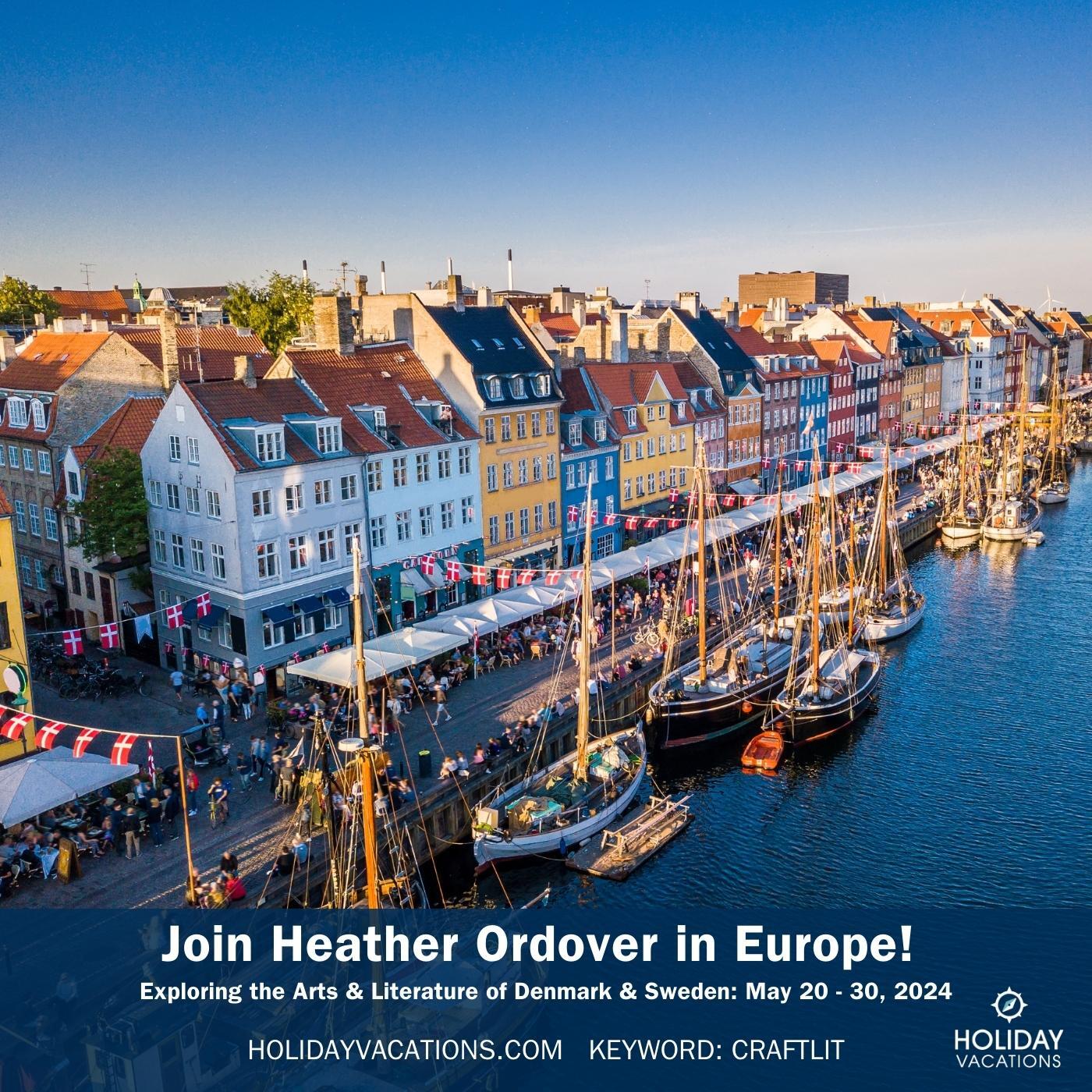We are reading Elizabeth Gaskell’s North and South , chapter 4, with many thanks to our reader, Barbara Edleman. Book talk begins at 12 minutes. The first N&S episode is 331.
, chapter 4, with many thanks to our reader, Barbara Edleman. Book talk begins at 12 minutes. The first N&S episode is 331.
If the iTunes feed ever goes down, please head over to the Libsyn site.
February Giveaway
You have until February 28th to win a copy of Crochet Wraps Every Which Way by Joanna Johnson (Q&A with Tammy here). December winner was Lisa P.
CraftLit Holiday Cookbook is still available (and free!). If you have recipes to add, please email them to me.
Grounded
ALL eight of the Grounded sock patterns—are now in the complete eBook Novel Socks!
.
To keep on top of new socks, shawls, and sock puppet theater
(you heard me)
join the (very infrequently used)
Grounded mailing list!
.
.
.
Literary Links of Interest for this chapter:
The Thirty-Nine Articles in question.
Our Sponsors:
Crafty News:
- Arlin’s / Lost Geek’s pattern info: 100% of sales of this pattern Traipsing Vines wrap/shawl during the month of January and February 2014 will go to relief efforts of Manado flash flood, Jakarta flood, and Mt. Sinabung eruption.
 Funds will be directed to local Red Cross and local evacuation sites. Thank you for supporting the victims of Indonesia natural disasters.
Funds will be directed to local Red Cross and local evacuation sites. Thank you for supporting the victims of Indonesia natural disasters. - Halos of Hope Podcaster Throwdown (Our CraftLit-Throwdown group page on Ravelry—let’s get more than six hats in there, please)
- Not a knitter? Don’t have time to make a hat? Each $5.00 donation to Halos of Hope will be equal to 1 hat contributed to their chosen team. All monies raised through this initiative will help us to ship the 2,000+ hats that we hope are received through this campaign. $5 ships 16 hats to a center in need.
- New What (Else) Would Madame Defarge Knit? KALs happening right now. Learn more and sign up for the mailing list.
General News:
- The Cognitive Anchoring blogged book will tell you why knitting and crocheting and doodling is good for your brain, take a look.

- There’s a new Windows Phone app for CraftLit!
- If you want to subscribe to support the show, you can choose between the simplicity of subscribing through Libsyn to CraftLit on-the-go on your iPhone/iTouch/Android app or if you’re using an mp3 player you can subscribe via PayPal for a Download-only plan. Same content, either way.

 grab the code
grab the code





